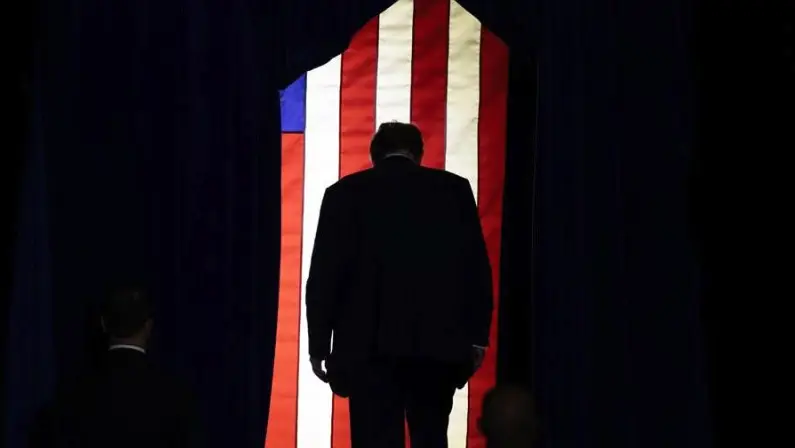The world is experiencing a profound upheaval: an era of authoritarian shifts supported by majorities. Donald Trump’s historic electoral win wasn’t the Copernican shift he claims, nor does it grant him the authority to overhaul everything. In a democracy, winning an election does not equate to the delegation of absolute power. Unfortunately, this confusion between legitimacy and legality often goes unchallenged, undermining democratic quality both now and in the future.
The fact that 50.4% of voters chose Trump doesn’t make him less authoritarian or any less of a fascist aspirant. Nor should this significant victory be seen as a power delegation, which is inherently undemocratic. Incidentally, by the way, Harris secured 48% of the votes.
Now is not the time for simple explanations or blaming one cause. Trump won for many reasons, including effective propaganda, demonization, misogyny, racism, the militarization of politics and a lack of accountability for his attempted coup. The rule of law is crucial to democracy, yet it was openly disregarded. The U.S. political system ignored Trump’s coup attempt and decided he could run again.
Normalizing illegality
Additionally, many media outlets ended up normalizing Trump’s lawlessness. His extremism became a fixture in media narratives and international dynamics undoubtedly aided him. As expected, his global allies provided full support.
Some voters favored the former president, believing he would be better for the economy, while others felt there wasn’t much difference between the pro-democracy candidate and the anti-democracy one. As with all populism, genuine criticism of elitism and technocratic governance fused with a messianic, authoritarian and hierarchical response. Trump’s anti-politics message was highly effective, but this doesn’t mean his solutions will curb elitism or improve the country’s economic situation. On the contrary, his protectionist plans and promises of mass deportations will worsen people’s lives in many ways.
History seems to repeat itself. During his 2016 campaign, Trump faced sharp criticism for fascist and racist remarks, only to soften his tone drastically post-election. At the start of his presidency, many newspapers hesitated to label him misogynistic or racist, despite mounting evidence and terms like “fascism” were often avoided. Back then, many believed that institutions, the rule of law and the country’s tradition of legal adherence would force the new president to act “presidential” and respect core constitutional values. Of course, the opposite happened. Trump never became “presidential.” Fascist aspirants never do, and his term concluded with the failed coup attempt on January 6, 2021.
Despite all this, his narrative was once again normalized and the lessons of his first term faded from memory.
For experts in fascism and populism, Trump’s authoritarianism has never been a mere political strategy but a genuine expression rooted in reality. Like Jair Bolsonaro in Brazil, Viktor Orbán in Hungary and Narendra Modi in India, Trump is an extreme populist and a fascist aspirant.
A turning point
By denying the results of the 2020 election and promoting the Big Lie about electoral fraud, Trump created a turning point in populist politics, paving the way for other leaders to reject the electoral legitimacy of their opponents. Bolsonaro in Brazil and Benjamin Netanyahu in Israel have similarly used false claims about election legality to create an alternate reality in which they can govern unburdened by democratic processes.
In a potential future administration, Trump is likely to escalate the distortion of legality in favor of his perceived legitimacy as a leader. His disregard for the rule of law would become the norm, gradually sidelining human and political rights. Fascists, and often populists too, justify extreme illegality under the guise of legality. This won’t necessarily destroy American democracy, but it will undoubtedly face relentless assaults from the leader.
Fascist aspirations represent an incomplete version of fascism, typical of those who aim to dismantle democracy for short-term personal gain. Win or lose, Trump remains an authoritarian figure, an extreme populist and a model of antidemocracy threatening global pluralism and tolerance.













